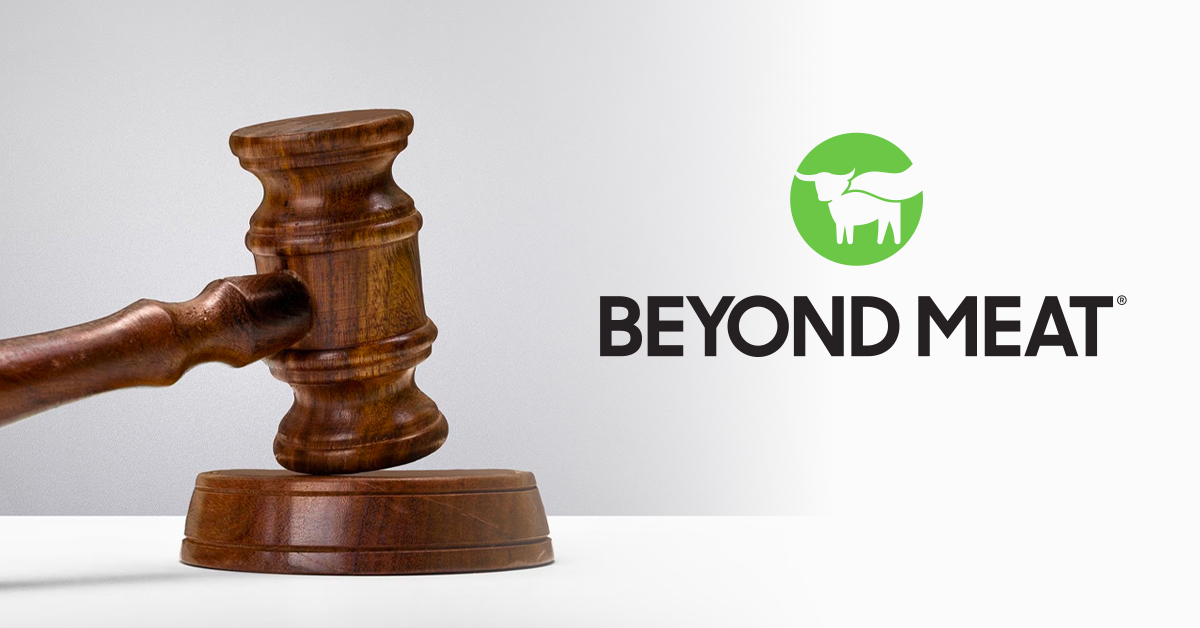Beyond Meat: Shareholder Lawsuit Alleges Leadership Overstated Success of QSR Partnerships

Beyond Meat is facing a class action lawsuit by institutional shareholders alleging that company executives “misled investors by boasting about the success of its product” and profited from the artificially inflated share prices.
The lawsuit was filed by the Retail Wholesale Department Store Union Local 338 Retirement Fund in the U.S. District Court of Central California last week, just one day after the Los Angeles-based alt-meat company announced its Q1 2023 earnings results. The suit alleges that between May 5, 2020, and Oct. 13, 2022 Beyond CEO and co-founder Ethan Brown – along with two former chief financial officers, Mark Nelson and Phillip Hardin – knowingly misled investors about the strength of the company’s manufacturing and foodservice partnerships.
The lawsuit states that the New York and New Jersey area retail workers’ pension fund, which bought over 41,000 shares in Beyond Meat over a one-year period between September 2020 through September 2021 – suffered significant losses and damages as a result of Beyond’s declining share price. According to the filing, Beyond executives frequently overstated the success of the brand’s foodservice partnerships with prominent QSR chains like McDonalds, Starbucks, KFC, Pizza Hut and Taco Bell despite news and reports that the company was experiencing production delays, expenses, rising inventories and a loss of market share.
The filing cites multiple examples of how Beyond’s leadership team downplayed production problems and voiced confidence in the company’s partnerships with various distributors during earnings calls despite evidence to the contrary.
The suit claims that the alt meat maker has suffered from “widespread scaling issues, particularly misalignment and delayed decision making, which led to corresponding production delays” that were underplayed or skipped over by executives during investor presentations and public statements. The plaintiffs also argue that Brown and Beyond leadership blamed some of these delays and the lack of promised full-scale partnerships on the COVID-19 pandemic instead of documented mismanagement.
In addition, the suit claims that the three Beyond executives profited by selling personal shares in the company before the stock plummeted almost 88% in the year between October 2021 and 2022. Former CFO Mark Nelson sold 440,000 shares of Beyond Meat stock during the class action period of time netting over $58.3 million in proceeds, according to the filing.
This is not the first time Beyond has found itself on the defensive regarding embellishments and false claims made publicly to investors and service partners.
Former co-manufacturing partner Don Lee Farms has targeted Beyond Meat with a series of lawsuits over the years claiming it overpromised and underdelivered in its partnership regarding nutritional labeling claims among a host of marketing issues stemming from Brown’s statements. The case was ultimately settled with all claims dismissed.
Beyond also settled a derivative suit filed by a group of investors in 2020 alleging that three senior executives “breached their fiduciary duties” regarding the legal battle with Don Lee Farms. Meanwhile, in June 2022, a consumer-led class action lawsuit claimed that the leadership team misled and lied to consumers about the comparability of Beyond’s protein to animal products. As of February, a series of class action lawsuits against the company over the protein content of its products will be heard in Chicago as a single case.
Despite all the legal woes, on last week’s earnings call the company said it has made “tangible progress” towards its goal of being cash flow positive by the end of the year. At the same time as the earnings report, Beyond announced it was offering an additional $200 million in “at the market” shares further diluting its share price for investors in order to “use opportunistically” as it seeks simplify its production stream.
The company’s stock dipped to an all-time low last Friday of $9.82 per share compared to its high during the case period of $194.95 in October 2020.

















